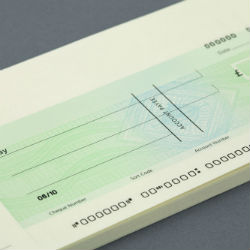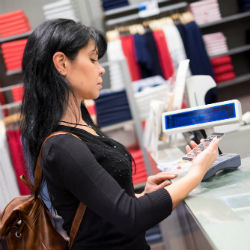Answer these simple questions and we will find you the BEST prices
Which type of solar quotes do you need?
It only takes 30 seconds
100% free with no obligation

Get up to 4 quotes from our selected suppliers by filling in only 1 form

Save money by comparing quotes and choosing the most competitive offer

Our service is 100% free and with no obligation
- Market-Inspector.co.uk
- Blog
- Are Cheques Still in Use as a Payment Method?
Are Cheques Still Used as a Payment Method?
Cheques have been used since a long time, but are cheques still in use and perceived as a payment method? You can also see how ePOS systems can streamline your business.
A Brief History of Cheques
It is not clear when and where the first cheque appeared, but it was probably in the Netherlands during the early 1500s.
The next cheque was issued in the UK in 1659, long after its initial debut in the Netherlands. It was written fully by hand and was made with an account from a bank based in London. Back then, cheques weren't written by the everyday consumers but rather by merchants and traders.
The first known printed cheque as we understand today was made in 1762, and it is in the same period that the word “check” appeared in the English language.
Worldwide Current Status of Cheques

Currently, the amount of cheques used worldwide is decreasing. In 2005, 40% of worldwide transactions were made by cheques, then this number dramatically fell to a dismal 16% by 2010, and then 8% by 2014.
Cheques have almost completely disappeared in countries such as Germany, Austria, the Netherlands, and Belgium, as well as Scandinavia. These countries in particular use direct bank transfers instead of more innovative payment methods like mobile banking.
Current Status of Cheques in the UK
While the use of cheques in the UK have decreased, payment methods in the UK haven't really gone through any drastic changes. Bank-to-bank transfers have certainly increased, but not as much as in Germany or in Belgium. In 2012, one out of ten UK payments were still made by cheques.
They are few reasons why cheques remain used in the UK, below are listed two of them:
Changes might not be as fast comapred to other parts of the world, but the UK is definitely going to the direction of a cheque free society. In 2005, Shell decided not to accept cheques anymore, and a lot of retailers are following suit. The past 20 years has shown us that the use of cheques in the UK has significantly declined by 79%.
New Ways of Payment

Today, payment methods are rapidly evolving, for both individuals and companies. Many new technologies have been introduced on the market. For instance...
Back in 1966 the first credit card was issued in the UK, since then, the number of users has grown over 34 million by the end of 2014. The debit card was then introduced in the UK in 1987.
In 2003, chip and pin cards were introduced. The microchip stocks personal information and gives an extra security to the credit or debit card holders. From then on, providing a signature was not sufficient anymore to realize a payment -- a digital code became paramount.
Lately the market introduced contactless payments. Nowadays, purchases under 20£ can be made by just presenting the card on the machine. This makes the checkout process much faster and easier because you don't have to sign or enter a pin code.
Additionally, you can now pay with your phone or apple watch and these kind of payment devices will surely develop in the near future.
Be Prepared
All these new technologies offer new ways of processing payments for the customers. It is important that shops embrace the right machines to accept this new trends.
New POS systems offer all these options which can provide a good customer service and a competitive advantage.
If you need help to find a POS system that can handle the latest technologies, complete a quote request form today and we will provide you with free quotes from qualified suppliers that can help your business.
Fill in the form in just 1 minute
We strive to connect our customers with the right product and supplier. Would you like to be part of Market Inspector?

